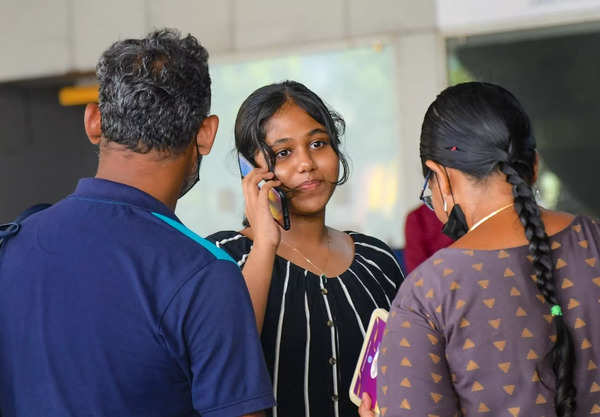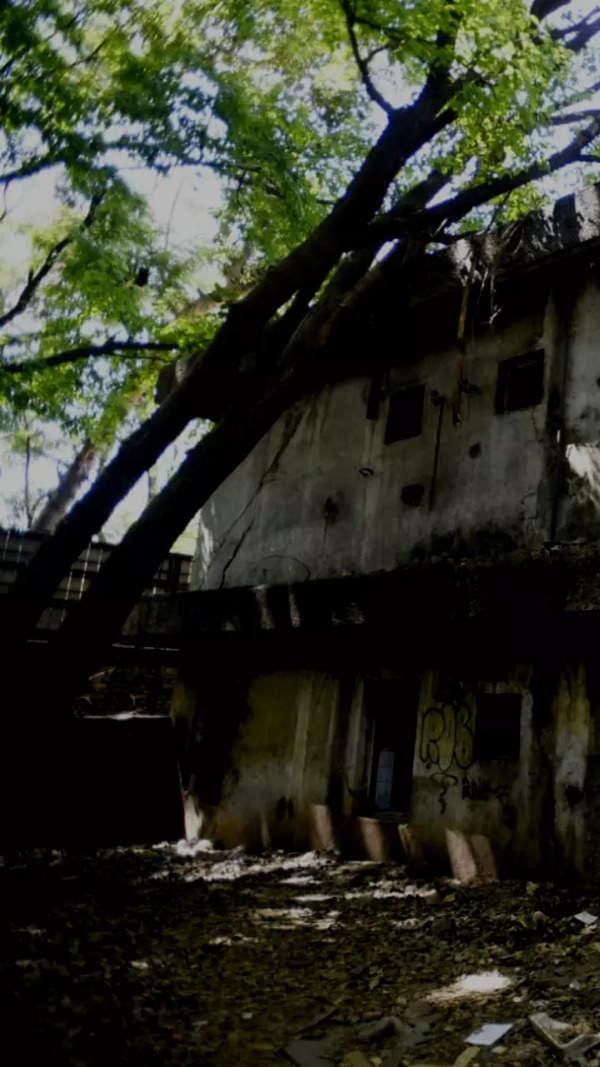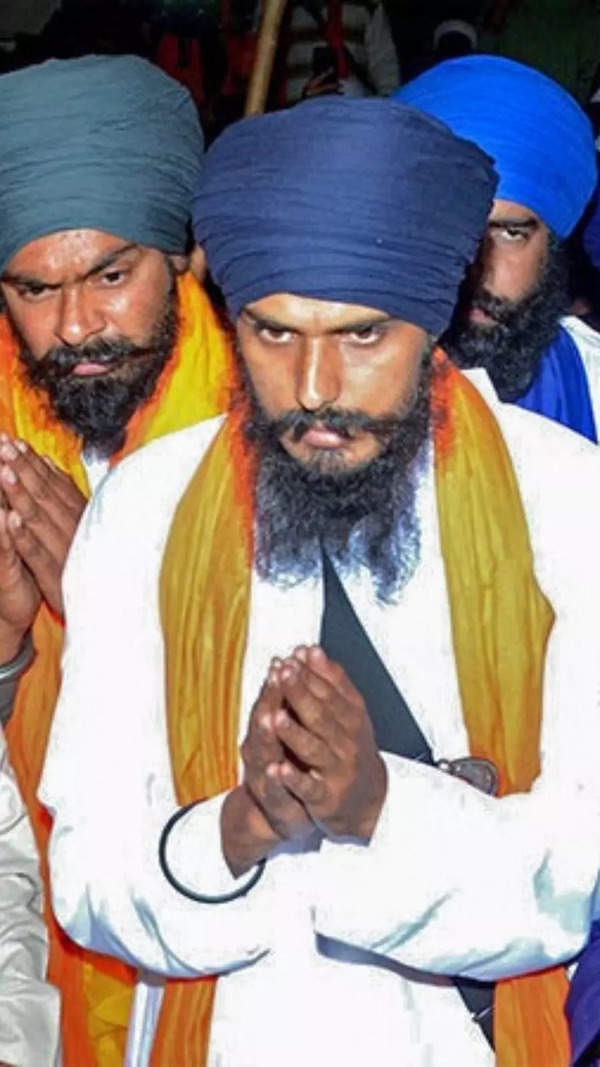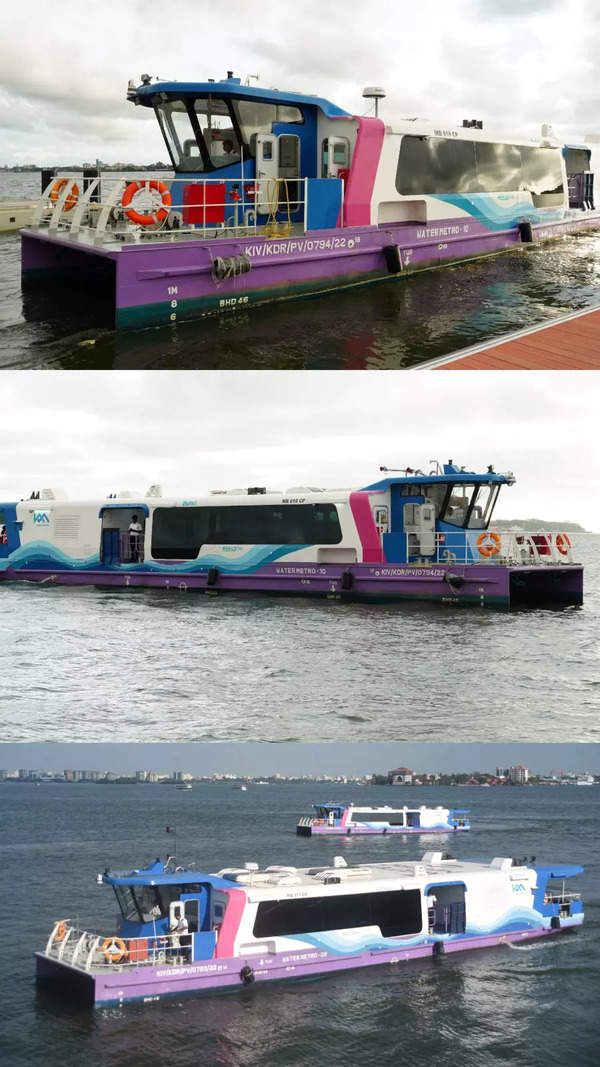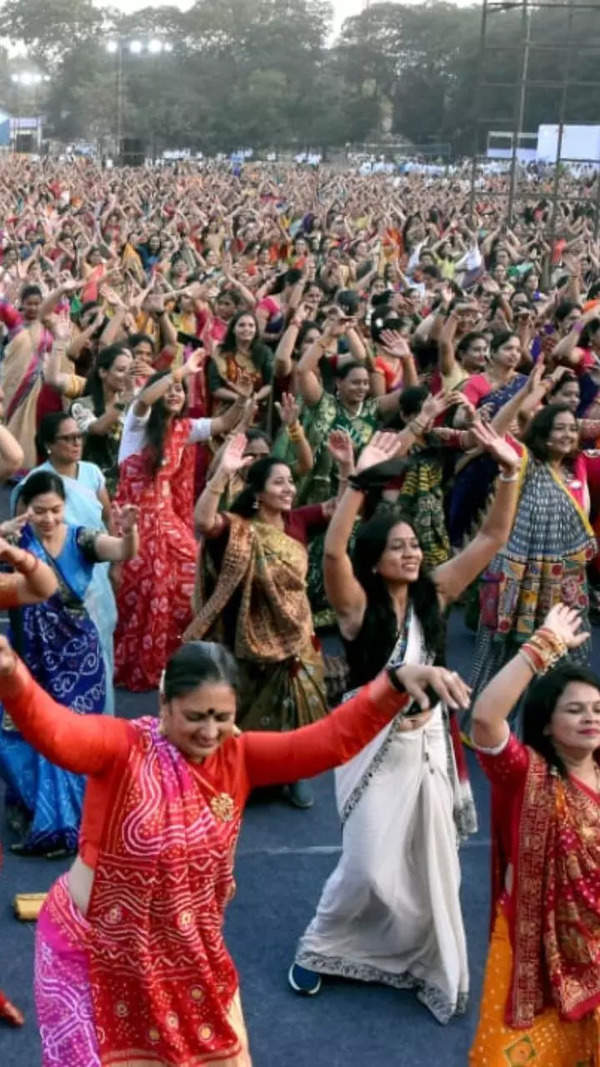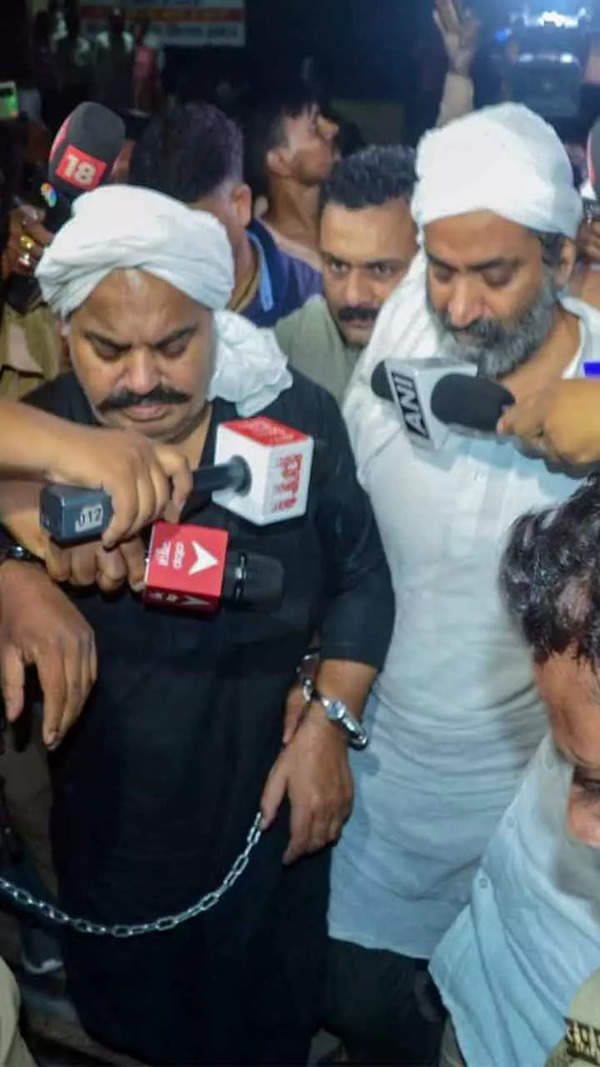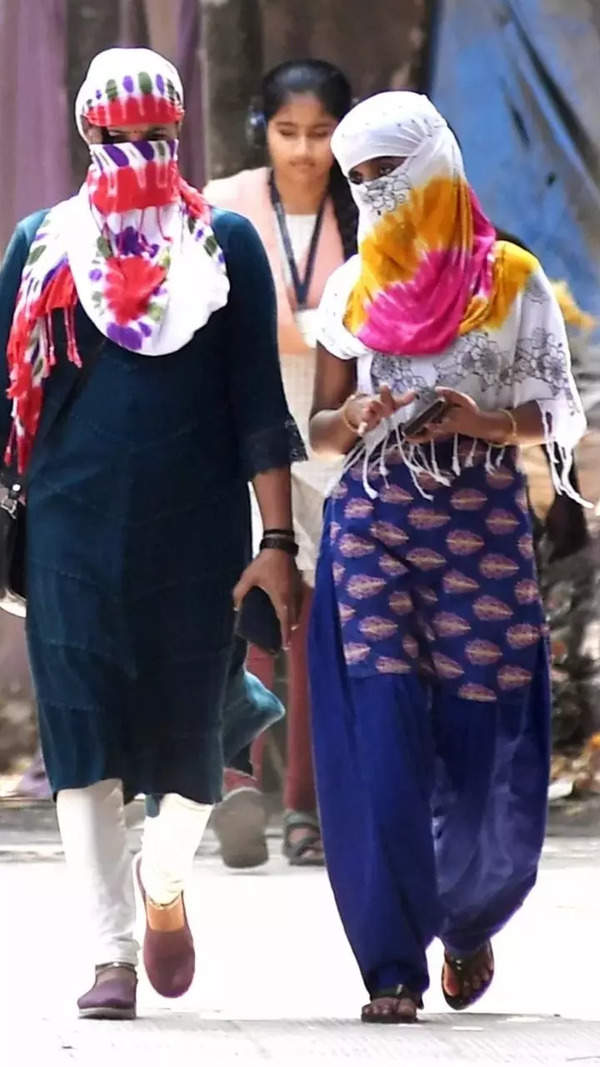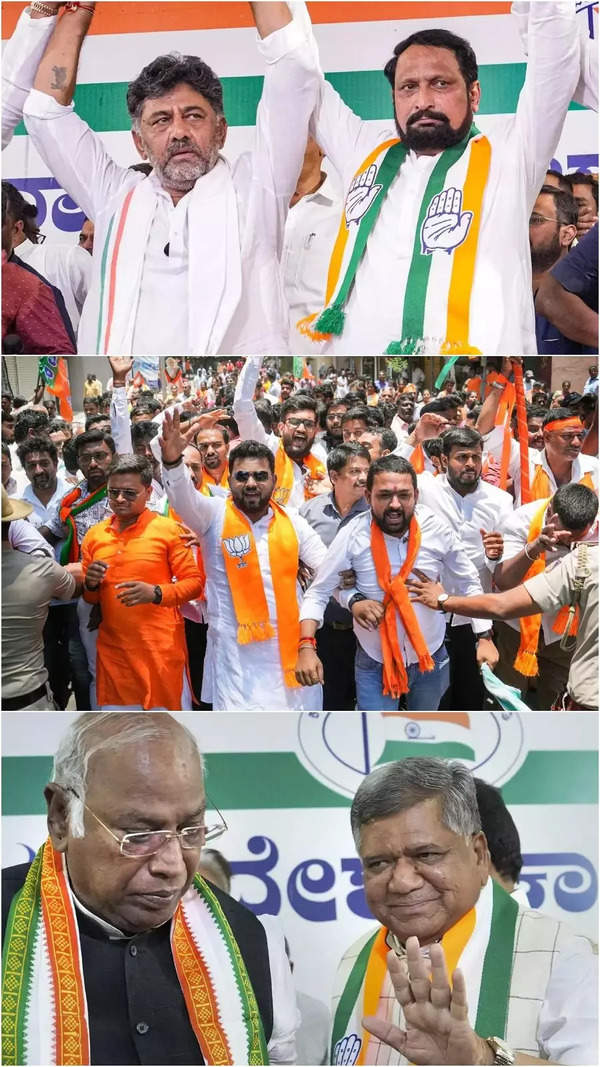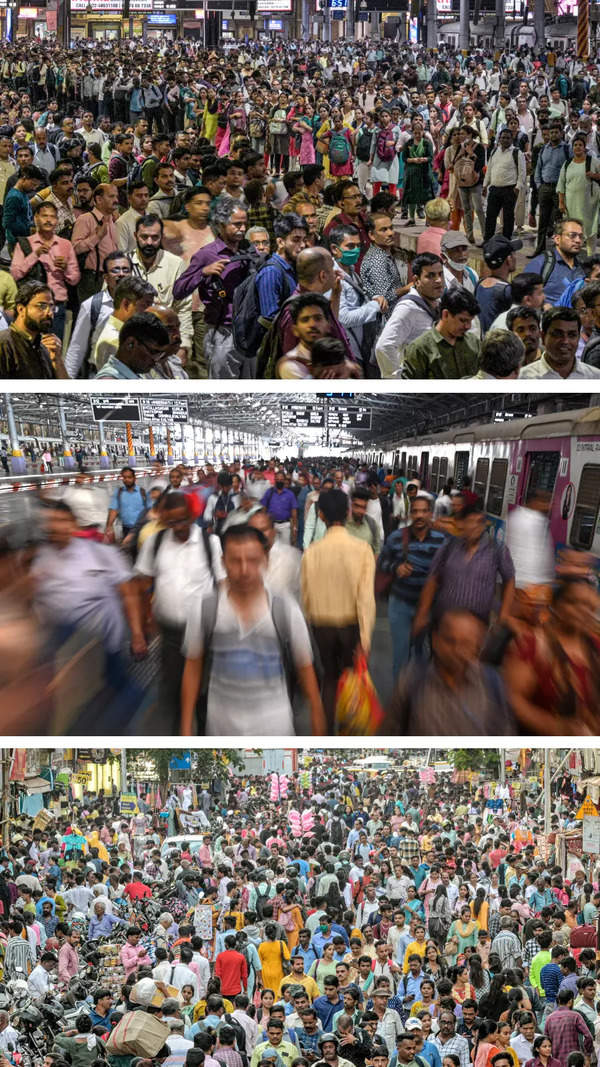- News
- City News
- nagpur News
- Stagecraft tried to develop theatre culture in last 20 yrs, says Vikash Khurana
Trending Topics
Stagecraft tried to develop theatre culture in last 20 yrs, says Vikash Khurana
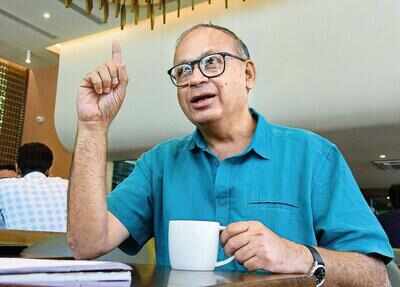
Nagpur’s iconic theatre group Stagecraft Theatre will be celebrating its 20th anniversary this year. From humble beginnings in 2003, Stagecraft has become a well-known name by carving a niche for itself in the city’s cultural landscape with an impressive repertoire of 85 productions, and an unwavering commitment to promoting theatre. Right from classic Shakespearean dramas to vibrant and colourful children’s plays, Stagecraft has produced plays not only in English but also in Hindi and ‘Hinglish’. TOI spoke with Stagecraft’s founder Vikash Khurana, who talked about the highs and lows, the challenges he’s faced, and his vision for the future.
Excerpts…
Q. How does it feel to complete 20 years doing theatre in the city?
A. Fulfilling. We have nurtured around 400 artists during this journey, and many of them have made a name in the professional circuit. Thousands of children were introduced to theatre through our school visits and workshops. Most importantly, we achieved a great connect with Nagpur’s audiences. The name ‘Stagecraft’ has become a brand here. We have represented the city at prestigious theatre festivals like National Centre for the Performing Arts (NCPA), Prithvi Theatre in Mumbai, and Qadir Ali Baig Theatre Festival at Hyderabad.
Q. Stagecraft started as an English theatre group, but recently ventured in Hindi too. Why?
A. Well, we had never set any language barrier. My only focus was theatre, irrespective of language. I came back from Mumbai after completing my graduation and having a small but effective stint with Satyadev Dubey’s theatre group. In fact, years before Statecraft, we had organized Nagpur’s first multilingual theatre fest in 1998. It had plays from Mumbai, and I had directed a Hindi version of Prof Mahesh Elkunchwar’s play “Pratibimba”. Gradually, when we ventured into English plays and started producing Shakespearean plays, I realized it’s difficult to change people’s accents. We can teach them pronunciation, but the accent is just natural. So, we decided to modify the classic plays, and adopt them in the Indian set-up. This gave birth to the concept of ‘Hinglish’ plays. In recent times, we have produced many Hindi plays.
Q. Nagpur has experienced a sea change in the last two decades. What about the theatre scenario?
A. Nagpur has become a smart city with a major infra boost in the last few years. Big auditoriums have come up. But a Smart city also needs smart people. To make people smart, we need platforms to develop the creative abilities of youths. If a person learns the basics of theatre in school, and decides to pursue the same thereafter, Nagpur has no platform for learning or performing. Huge auditoriums have been constructed but they charge rent as high as Rs1 lakh for a day. The local theatres need a small 200-capacity auditorium, an art gallery, a cafeteria, and a rehearsal hall – in short, a place dedicated to the art for the entire year. City auditoriums are given on rent for political meetings, and many times they cancel pre-booked theatrical performances. During our initial days, we had such experiences.
Q. Can you share some such experiences?
A. Vasantrao Deshpande Hall was the only decent auditorium when we started. After facing a few ‘political cancellations’, we decided to shift. We tried a school hall and an open theatre too. Finally, we got the IMA’s JR Shaw Auditorium in 2006-07. It proved to be a great move. Soon, IMA’s hall and Stagecraft became synonyms. But when metro work began in 2017, access to this hall was blocked. Then came Covid, and the entire scenario changed.
Q. Do you think theatre will ever recover from the pandemic set back?
A. I am not sure about it. Those two years have changed us for a lifetime. People have lost connect with art, creativity, emotions and sentiments. They don’t even read that seriously now. We hardly get a dedicated audience that watches a play with complete involvement for two hours. People get engrossed in their mobile phones during plays. Post pandemic, we have lost personal connect. We prefer text messaging over personally meeting each other. If things go on like this, it would be difficult to get an audience for a play.
Q. You see this disconnect only in Nagpur or at other places too.
A. At other places like Mumbai, theatre is a way of life for many. So, they have returned to their old normal. Places like Prithvi Theatre have become vibrant again. They get a full house audience. Stagecraft gets an invitation to perform at Prithvi Theatre every year now. We get good response and feedback from dedicated audiences, especially those who know theatre. So, it’s more fulfilling to perform at these platforms.
Q. Is that the reason why Stagecraft will be celebrating its 20th anniversary at Prithvi Theatre?
A. No. This year, they have given two full days to perform at the Prithvi Theatre. On May 23 and 24, we will be performing six shows — four of a children’s play ‘Peek a Boo’ and two of our new comedy play ‘Bird on a Wire’. As an artist, we get full freedom to use the auditorium for two days there. It’s not slot-wise booking, like here in Nagpur. You get a capacity-packed hall, and an encouraging audience. So, we will be initially presenting plays at Prithvi Theatre. Soon, we will be showing in Nagpur too, hopefully.
Q. Where do you see Stagecraft in the next 20 years?
A. I think a system has been developed. Earlier, I was the director and others used to follow my instructions. Now, it is a more democratic setup. We brainstorm together. New ideas are coming from new people. It’s time for me to hand over the baton to the young generation and take the role of a mentor now. But to keep this movement going on, we need a dedicated audience that will buy tickets and attend shows mindfully. All these 20 years, I tried to develop this culture in Nagpur, and was somewhat successful too. For the next 20 years, developing the temperament, and sensibility for theatre in the audiences here will be the biggest task.
Excerpts…
Q. How does it feel to complete 20 years doing theatre in the city?
A. Fulfilling. We have nurtured around 400 artists during this journey, and many of them have made a name in the professional circuit. Thousands of children were introduced to theatre through our school visits and workshops. Most importantly, we achieved a great connect with Nagpur’s audiences. The name ‘Stagecraft’ has become a brand here. We have represented the city at prestigious theatre festivals like National Centre for the Performing Arts (NCPA), Prithvi Theatre in Mumbai, and Qadir Ali Baig Theatre Festival at Hyderabad.
Q. Stagecraft started as an English theatre group, but recently ventured in Hindi too. Why?
A. Well, we had never set any language barrier. My only focus was theatre, irrespective of language. I came back from Mumbai after completing my graduation and having a small but effective stint with Satyadev Dubey’s theatre group. In fact, years before Statecraft, we had organized Nagpur’s first multilingual theatre fest in 1998. It had plays from Mumbai, and I had directed a Hindi version of Prof Mahesh Elkunchwar’s play “Pratibimba”. Gradually, when we ventured into English plays and started producing Shakespearean plays, I realized it’s difficult to change people’s accents. We can teach them pronunciation, but the accent is just natural. So, we decided to modify the classic plays, and adopt them in the Indian set-up. This gave birth to the concept of ‘Hinglish’ plays. In recent times, we have produced many Hindi plays.
Q. Nagpur has experienced a sea change in the last two decades. What about the theatre scenario?
A. Nagpur has become a smart city with a major infra boost in the last few years. Big auditoriums have come up. But a Smart city also needs smart people. To make people smart, we need platforms to develop the creative abilities of youths. If a person learns the basics of theatre in school, and decides to pursue the same thereafter, Nagpur has no platform for learning or performing. Huge auditoriums have been constructed but they charge rent as high as Rs1 lakh for a day. The local theatres need a small 200-capacity auditorium, an art gallery, a cafeteria, and a rehearsal hall – in short, a place dedicated to the art for the entire year. City auditoriums are given on rent for political meetings, and many times they cancel pre-booked theatrical performances. During our initial days, we had such experiences.
Q. Can you share some such experiences?
A. Vasantrao Deshpande Hall was the only decent auditorium when we started. After facing a few ‘political cancellations’, we decided to shift. We tried a school hall and an open theatre too. Finally, we got the IMA’s JR Shaw Auditorium in 2006-07. It proved to be a great move. Soon, IMA’s hall and Stagecraft became synonyms. But when metro work began in 2017, access to this hall was blocked. Then came Covid, and the entire scenario changed.
Q. Do you think theatre will ever recover from the pandemic set back?
A. I am not sure about it. Those two years have changed us for a lifetime. People have lost connect with art, creativity, emotions and sentiments. They don’t even read that seriously now. We hardly get a dedicated audience that watches a play with complete involvement for two hours. People get engrossed in their mobile phones during plays. Post pandemic, we have lost personal connect. We prefer text messaging over personally meeting each other. If things go on like this, it would be difficult to get an audience for a play.
Q. You see this disconnect only in Nagpur or at other places too.
A. At other places like Mumbai, theatre is a way of life for many. So, they have returned to their old normal. Places like Prithvi Theatre have become vibrant again. They get a full house audience. Stagecraft gets an invitation to perform at Prithvi Theatre every year now. We get good response and feedback from dedicated audiences, especially those who know theatre. So, it’s more fulfilling to perform at these platforms.
Q. Is that the reason why Stagecraft will be celebrating its 20th anniversary at Prithvi Theatre?
A. No. This year, they have given two full days to perform at the Prithvi Theatre. On May 23 and 24, we will be performing six shows — four of a children’s play ‘Peek a Boo’ and two of our new comedy play ‘Bird on a Wire’. As an artist, we get full freedom to use the auditorium for two days there. It’s not slot-wise booking, like here in Nagpur. You get a capacity-packed hall, and an encouraging audience. So, we will be initially presenting plays at Prithvi Theatre. Soon, we will be showing in Nagpur too, hopefully.
Q. Where do you see Stagecraft in the next 20 years?
A. I think a system has been developed. Earlier, I was the director and others used to follow my instructions. Now, it is a more democratic setup. We brainstorm together. New ideas are coming from new people. It’s time for me to hand over the baton to the young generation and take the role of a mentor now. But to keep this movement going on, we need a dedicated audience that will buy tickets and attend shows mindfully. All these 20 years, I tried to develop this culture in Nagpur, and was somewhat successful too. For the next 20 years, developing the temperament, and sensibility for theatre in the audiences here will be the biggest task.

About the Author
Chaitanya DeshpandeChaitanya Deshpande is Principal Correspondent at The Times of India, Nagpur. He has a PG degree in English literature and Mass communication. Chaitanya covers public health, medical issues, medical education, research in the fields of medicine, microbiology, biotechnology. He also covers culture, fine arts, theatre, folk arts, literature, and life. Proficient in Marathi and Hindi along with English, Chaitanya loves music, theatre and literature of all three languages.
Start a Conversation
FOLLOW US ON SOCIAL MEDIA
FacebookTwitterInstagramKOO APPYOUTUBE

